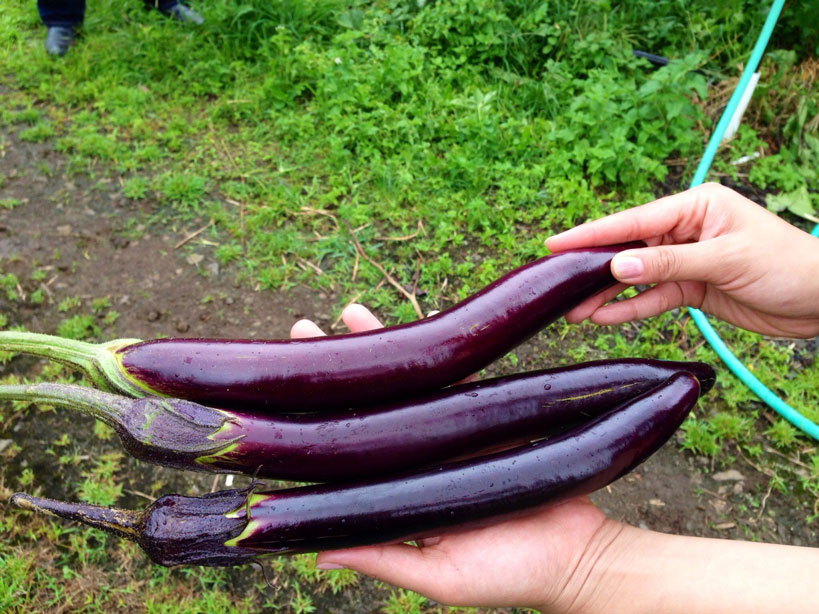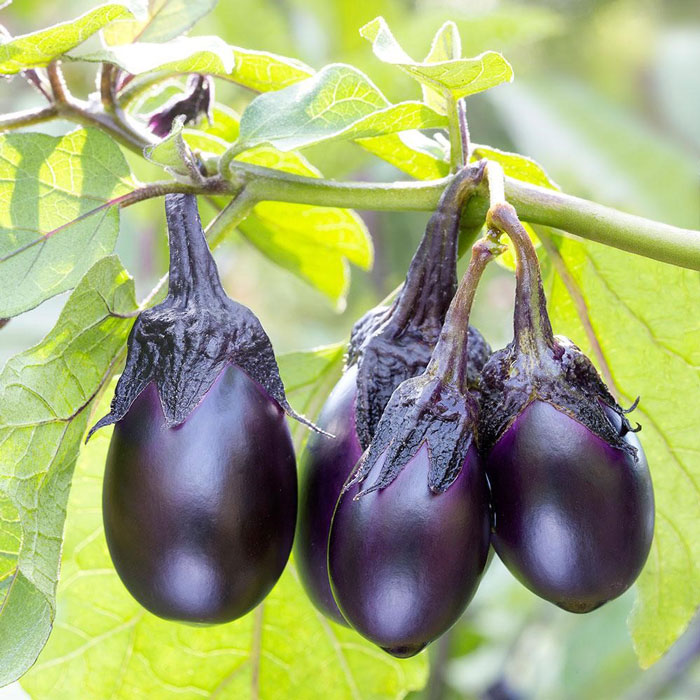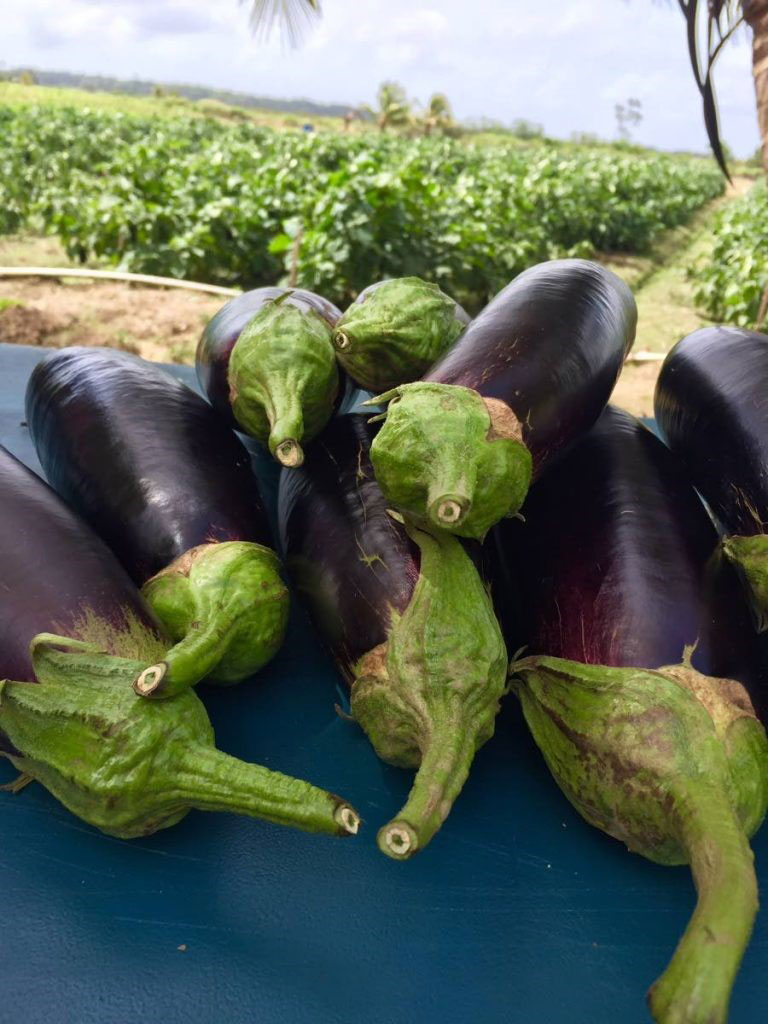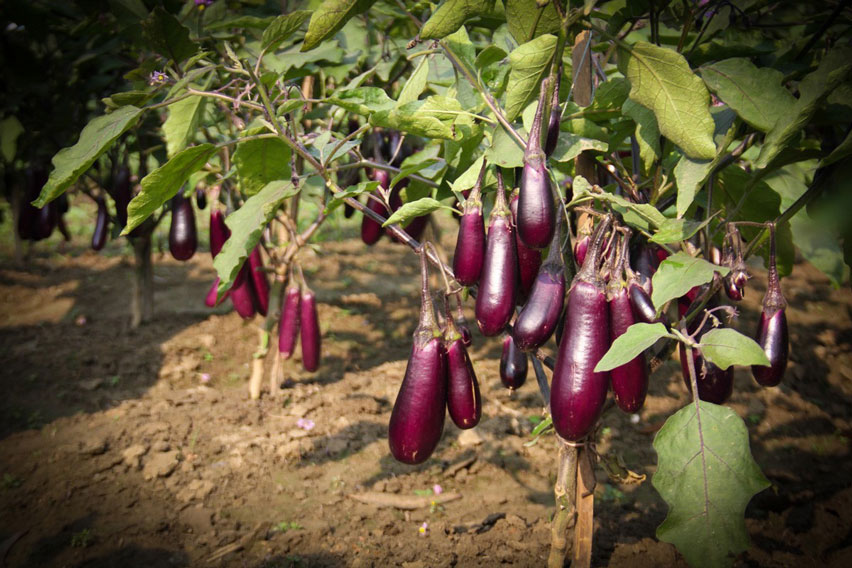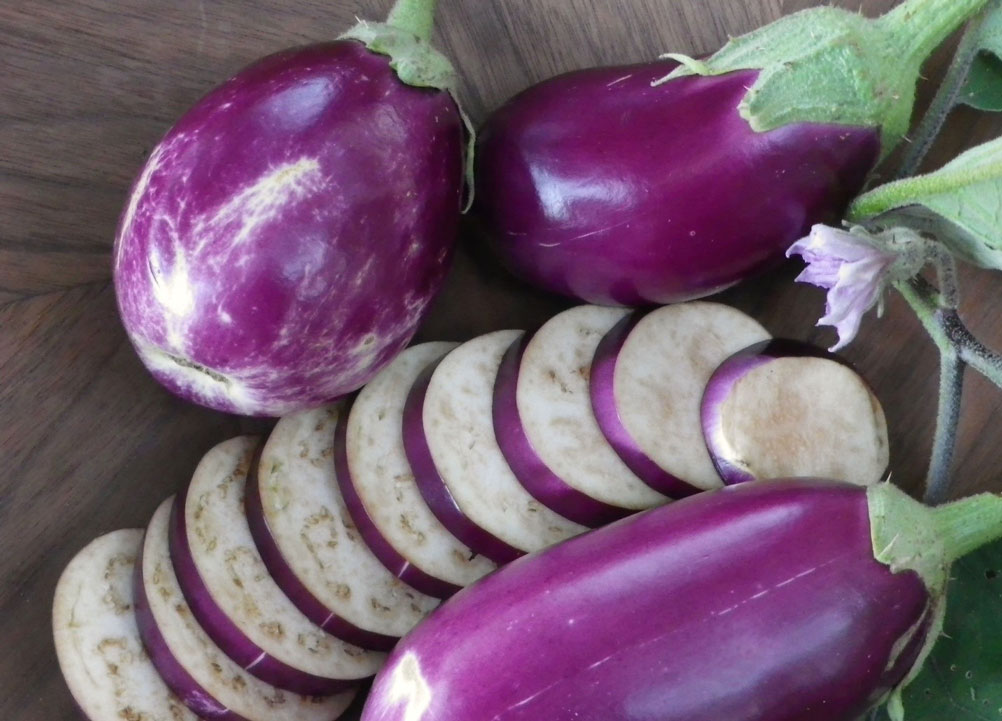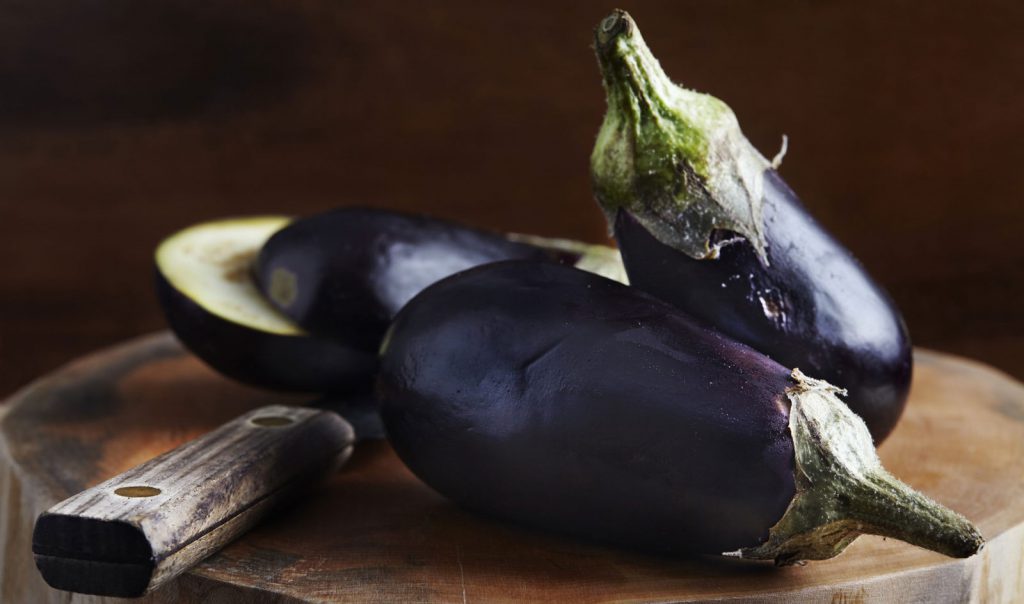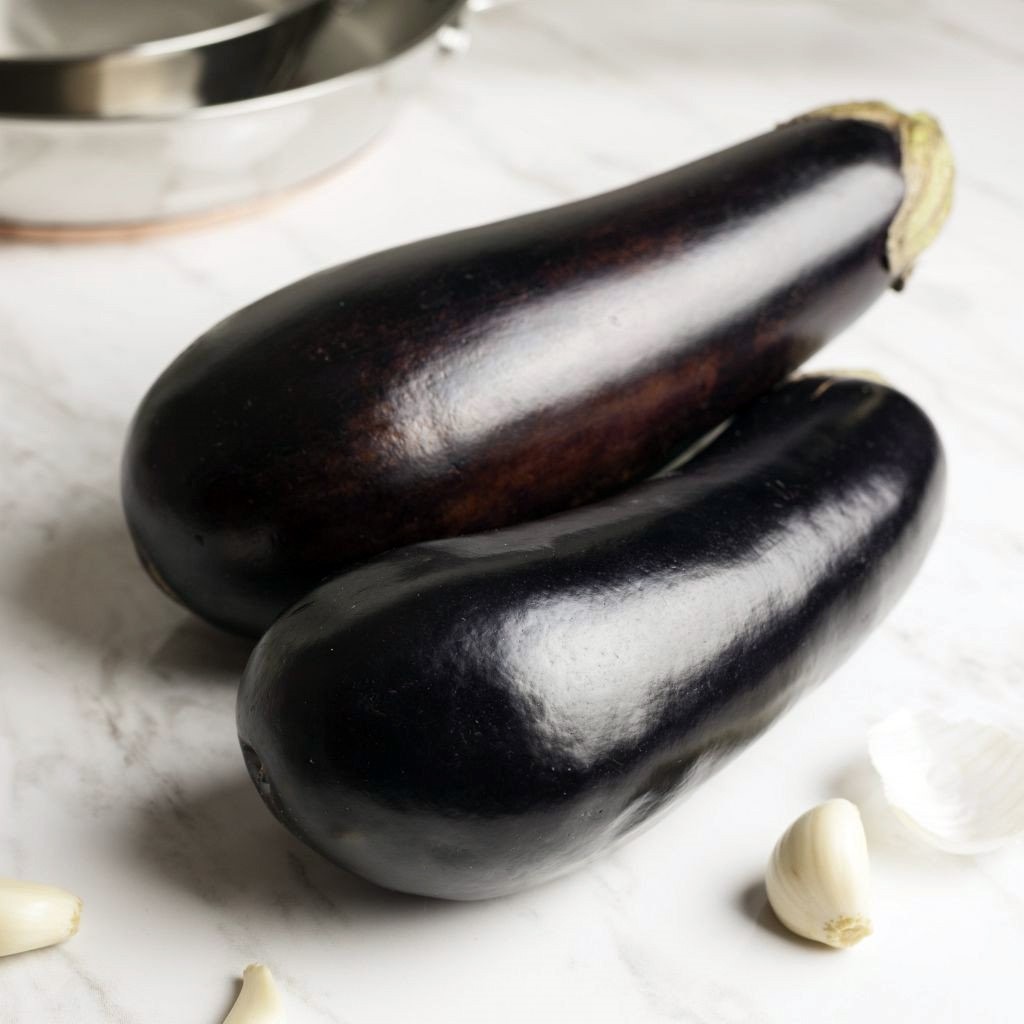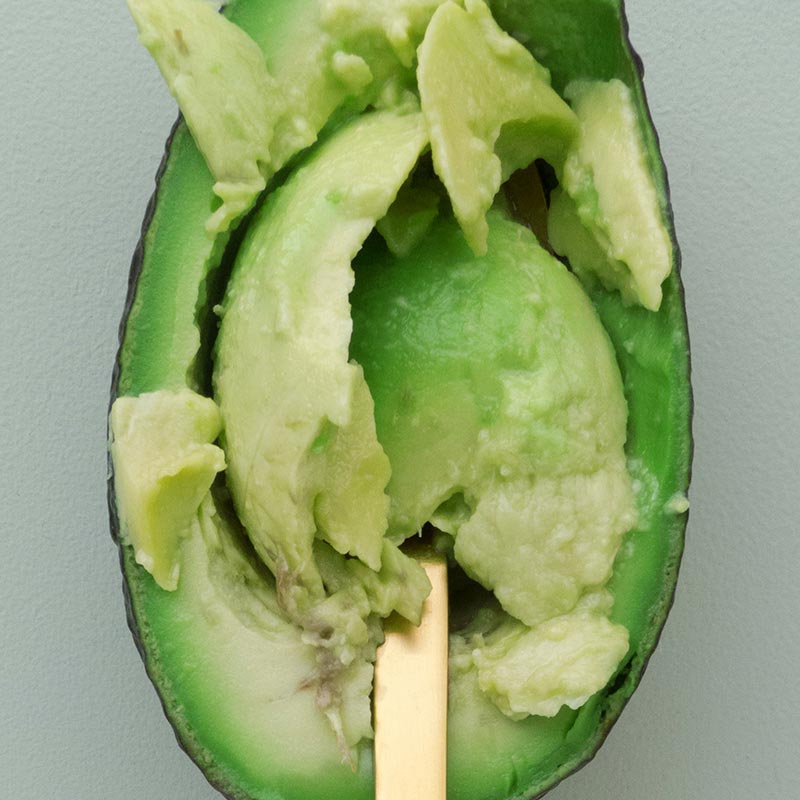Eggplant (US, Australia), aubergine (UK), or brinjal (South Asia and South Africa) is a plant species in the nightshade family Solanaceae. Solanum melongena is grown worldwide for its edible fruit.
Most commonly purple, the spongy, absorbent fruit is used in various cuisines. Although often considered a vegetable, it is a berry by botanical definition. As a member of the genus Solanum, it is related to tomato and potato. Like the tomato, its skin and seeds can be eaten, but, like the potato, it is usually eaten cooked. Eggplant is nutritionally low in macronutrient and micronutrient content, but the capability of the fruit to absorb oils and flavors into its flesh through cooking expands its use in the culinary arts.
It was originally domesticated from the wild nightshade species thorn or bitter apple, S. incanum, probably with two independent domestications: one in South Asia, and one in East Asia.
The eggplant is a delicate, tropical perennial plant often cultivated as a tender or half-hardy annual in temperate climates. The stem is often spiny. The flowers are white to purple in color, with a five-lobed corolla and yellow stamens.
Some common cultivars have fruit that is egg-shaped, glossy, and purple with white flesh and a spongy, “meaty” texture. Some other cultivars are white and longer in shape. The cut surface of the flesh rapidly turns brown when the fruit is cut open (oxidation).
In 2016, global production of eggplants was 51.3 million tonnes. That year, almost 1.8 million hectares (4.4 million acres) were devoted to the cultivation of eggplants in the world and and Iran were major producers. Over 62% of that output came from China alone. India (24.5% of world total), Egypt, Turkey.


